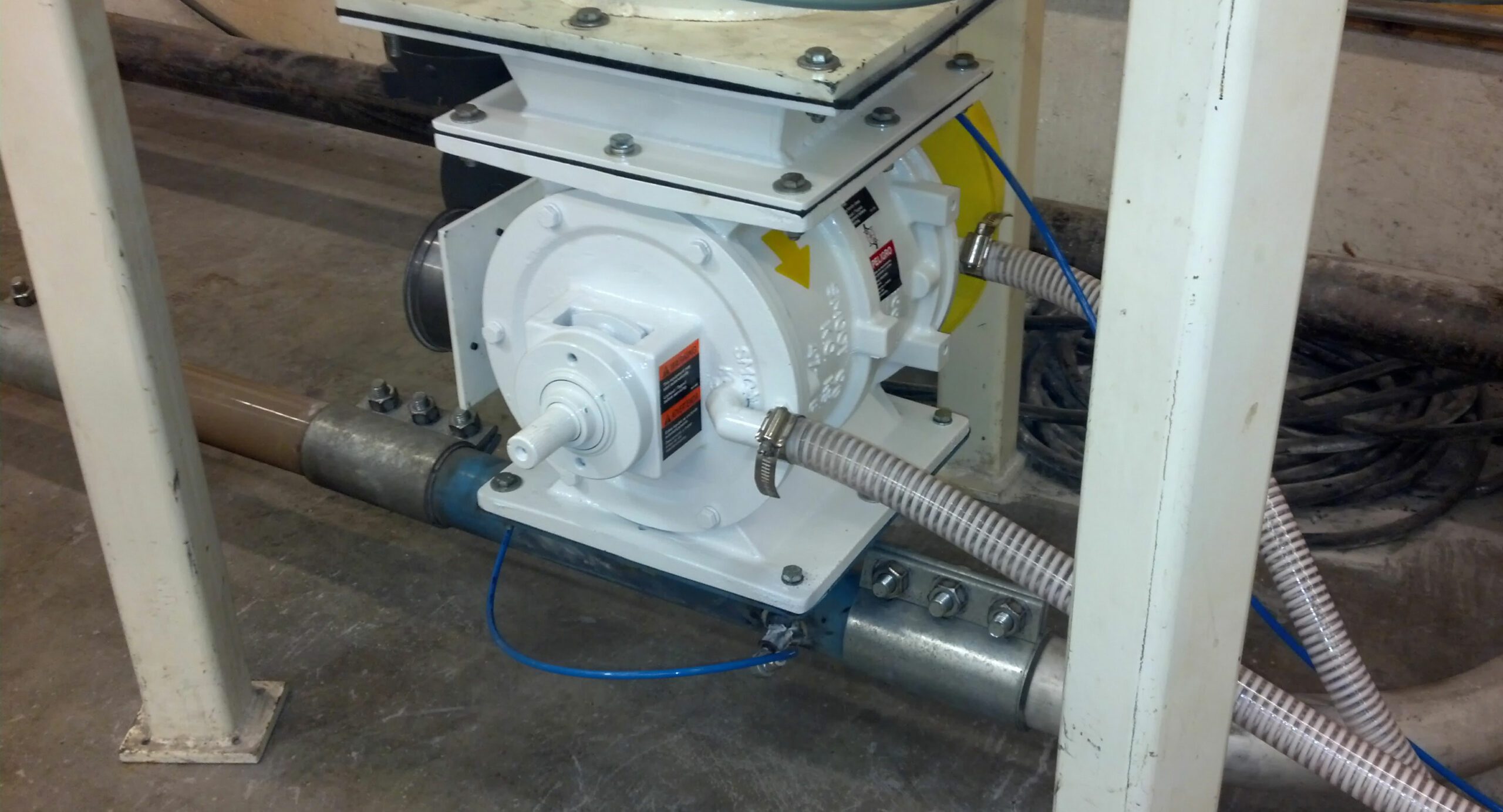
Rotary valve airlocks, also known as airlocks, are pivotal in material handling across various industrial settings. They allow for the controlled flow of bulk materials from one process to another while simultaneously maintaining the pressure and preventing the escape of gas or air. Airlocks can both manage material movement and protect the integrity of pneumatic conveying systems.
Airlock’s Greatest Features and Benefits
One of the primary advantages of rotary valves is their ability to operate under various pressures and vacuum conditions. Constructed with durable materials, they provide longevity and reliability even in demanding environments. Additionally, airlocks can handle multiple materials, from fine powders to coarse granules, making them versatile for many applications. Their design ensures minimal product degradation and consistent flow rates, essential for optimizing production processes.
Moving Material More Efficiently and Safely
The innovative engineering behind rotary valve airlocks includes features like adjustable speed settings and wear-resistant coatings, further enhancing their adaptability and efficiency. The capacity for precise volumetric control allows operators to manage material flows accurately, reducing waste, and increasing overall operational efficiency.
This efficiency is crucial in pharmaceuticals, food processing, and semiconductor manufacturing industries, where even the slightest disruption can lead to costly product loss or quality issues.
Airlocks also help maintain compliance with health and safety regulations by limiting exposure to hazardous substances and preventing the ingress of unwanted contaminants. Moreover, their design often incorporates interlocks and alarms, enhancing safety protocols during material movements.
Maintaining Atmospheric Control
One of the most critical functions of airlocks is their ability to maintain atmospheric control. Industries that operate in controlled environments, such as cleanrooms or explosion-prone areas, depend on airlocks to regulate temperature, humidity, and particulate matter.
This control is vital not only for product integrity but also for preserving the health and safety of the workforce. Airlocks effectively manage these variables and ensure that industrial processes can proceed without interruption.
Applications Across Industries
Airlocks are used in various applications, including food processing, pharmaceuticals, and chemical manufacturing. Their role in maintaining hygiene, ensuring safety, and optimizing operational efficiency cannot be overstated.
In the food industry, for example, stainless steel rotary valve airlocks help prevent contamination while facilitating the precise handling of ingredients. In the pharmaceutical sector, where cleanliness and consistency are paramount, these valves support stringent regulatory requirements while promoting effective material transfer.
On the other hand, airlocks are essential in systems requiring the isolation of different pressures, ensuring that the transfer of materials does not compromise system integrity. Their use in bulk powder handling and pneumatic conveying systems optimizes processes in various applications, from conveying raw materials to packaging finished products.
When it comes to bulk solid material handling, airlocks play an integral role in ensuring efficient, reliable, and safe operations. By incorporating these devices into your systems, you can enhance your production capabilities and maintain the quality of your materials. Contact us to help you find a plan that is tailored to meet your unique needs. With the right product selection and support, you can leverage these essential components to drive your operational success.
Magnum Systems podcast series, AIM!
RELATED POSTS
Maximizing Efficiency in Production Lines: The Role of Rotary Airlock Valves
How Can High-Quality Rotary Airlock Valves Elevate Your Production Line?
When is a Rotary Valve Actually an Airlock, Airlock Feeder or a Feeder?
Understanding Rotary Valve Design – Features & Accessories
Related Post
Bill Griffiths Joins Magnum Systems as Director of Sales
The Role of a Systems Integrator in Transforming the Mining Workforce
Custom Systems Integration: Why One-Size-Fits-All Solutions Fail
Five Ways to Expand Automation Through Controls Migration Without Sacrificing Employee Morale